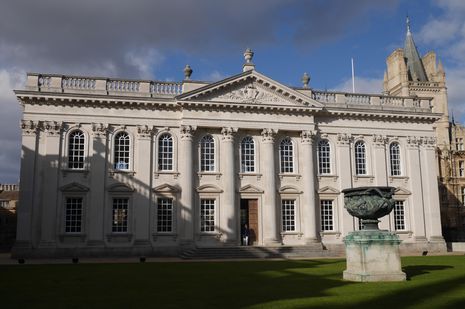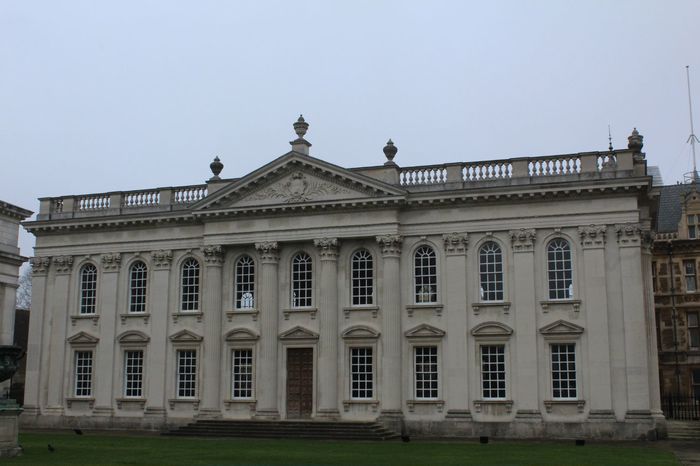Dons to vote whether to reveal University donors
Voting will take place between 24th November and 3rd December

A timetable has been set out for members of the University of Cambridge’s governing body to vote whether to reveal the University’s most prestigious donors.
The Vice-Chancellor’s Guild of Benefactors was launched in 1998 in order to recognise people who have donated over £1 million, or companies who have given more than £1.5 million to the University and its colleges. However, despite claiming to offer recognition for the generosity of donors, the names of the donors on the list have been kept secret since 2014.
Now, following demands by members of Regent House, the University’s governing body, fellows are to be offered a vote to decide whether to make the list public.
The impending ballot is the culmination of a move which began in June, when the University Council received a proposal for a vote - known as a grace - over whether to make the list public.
Signed by 94 fellows, the grace stated that “Members of the University have a right to know who its honoured funders are,” noting that otherwise members would not be able to “understand the nature of the institution of which they are a part”.
The grace additionally noted how, “paradoxically,” names of the members of the Guild have been carved into stone tablets, placed around a staircase in the Old Schools site. This area is deemed by the University to be a “secret area”, and is thereby inaccessible to members of the community.
The petition was begun by Professor Jason Scott-Warren, an academic in the University’s English Faculty. Scott-Warren is also a prominent activist, who has previously taken part in several environmental protests. In a blog post describing his reasoning for submitting the grace, he questioned why the University would “rather keep the names of their donors under wraps,” suggesting that it may be to prevent “reputational risk,” caused by accepting donations from controversial figures.
Scott-Warren pointed out “regimes that kill journalists in cold blood, autocracies that imprison protesters for decades on trumped-up charges, oil and gas companies, [and] people who fund climate change denying think-tanks,” as possible sources of reputational risk for the University.
In response to the comments, a spokesperson fot the University said: “The University has robust due diligence procedures to scrutinise strategic relationships, donations, and sources of funding, backed by specially formulated Ethical Guidelines.”
The announcement of the grace comes after a controversy in 2024 when it was revealed that the University had accepted a £20 million donation from Majid Jafar, CEO of the largest private upstream oil and gas company in the Middle East.
At the time, Scott-Warren told Varsity that the University “persistently sidelines ethical considerations in its efforts to secure donations,” while a member of the SU claimed that the University “continues to procrastinate its commitments to stop our complicity in this destruction.”
A spokesperson for the University, commenting on the Jafar donation, said: “We are immensely grateful for this personal donation from a Cambridge alumnus and his family, supporting the establishment of Cambridge Children’s Hospital and enabling it to carry out groundbreaking research and to improve the lives of children not only locally but also nationally and even internationally.”
Among the other notable signatories of the grace is W. T. Gowers, a fellow of Trinity College and Research Professor of Mathematics. Gowers won the Fields Medal, widely regarded as the most prestigious prize in mathematics, in 1998, and was awarded a knighthood by the then Queen in 2012.
The grace was subsequently submitted by the Council on the 30th July, pending the setting out of a timetable for a vote to take place. It has now been announced that members of the Regent House will now have the opportunity to vote on the grace between the 24th November and 3rd December.
Currently, all major donations are reviewed by the Committee on Benefactions and External and Legal Affairs, a committee of the University Council. However, this committee was criticised by a 2023 report into University of Cambridge ties to fossil fuels, which claimed that the “design of the CBELA decision-making process lacks clarity and transparency.”
The CBELA consists of 11 members, chaired by Vice-Chancellor Professor Deborah Prentice, with one seat reserved for a student representative.
 News / Judge Business School advisor resigns over Epstein and Andrew links18 February 2026
News / Judge Business School advisor resigns over Epstein and Andrew links18 February 2026 News / Gov grants £36m to Cambridge supercomputer17 February 2026
News / Gov grants £36m to Cambridge supercomputer17 February 2026 News / Hundreds of Cambridge academics demand vote on fate of vet course20 February 2026
News / Hundreds of Cambridge academics demand vote on fate of vet course20 February 2026 News / CUCA members attend Reform rally in London20 February 2026
News / CUCA members attend Reform rally in London20 February 2026 News / Union speakers condemn ‘hateful’ Katie Hopkins speech14 February 2026
News / Union speakers condemn ‘hateful’ Katie Hopkins speech14 February 2026










